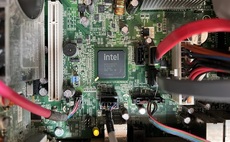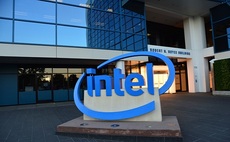Intel's big data initiatives to remain open source while the company focuses on Cloudera's distribution of Hadoop
Chip giant Intel has taken a major share stake in Hadoop distributor Cloudera for an undisclosed sum, and taken a seat on the company's board too, as big data continues to spread in popularity. ...
To continue reading this article...
Join Computing
- Unlimited access to real-time news, analysis and opinion from the technology industry
- Receive important and breaking news in our daily newsletter
- Be the first to hear about our events and awards programmes
- Join live member only interviews with IT leaders at the ‘IT Lounge’; your chance to ask your burning tech questions and have them answered
- Access to the Computing Delta hub providing market intelligence and research
- Receive our members-only newsletter with exclusive opinion pieces from senior IT Leaders




















